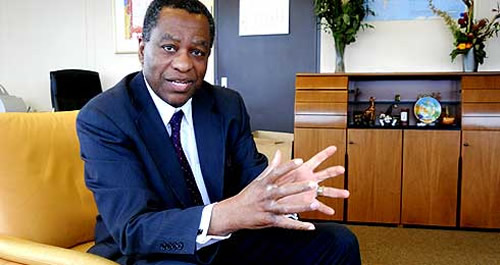By Ishaya Ibrahim
Nigeria’s image is everywhere under siege. This should not be the case.
From Ghana to Kenya and South Africa, on the continent; from Indonesia in South East Asia to the United States, Nigerians face hostilities.
What comes across from a few of them is mainly crime and prostitution, which dent the reputation of the majority who are professionals and make important contributions in foreign countries.
In Britain there are currently 6,312 medical doctors of Nigerian origin, according to data on the UK General Medical Council website, a 44 per cent increase on 2015 figures.
Over 4,200 Nigerians were approved for permanent residency in Canada in 2017, almost double the number from 2016, data from Immigration, Refugees and Citizenship show.
The good take
Nigerians in Canada make important contributions to both countries. They provide professional services in Canada and remit money home to friends and relatives.
Some have even gone into politics and public service.
On April 30, Kelechi Madu, a law graduate from the University of Lagos, took the oath of office as Minister of Municipal Affairs in Alberta, Canada.
Kelechi, popularly known as Kaycee, emigrated to Canada in 2005 with his wife and enrolled in postgraduate studies at the University of Alberta.
He was one of the 22 new cabinet members whom Alberta Premier, Jason Kenney, swore in at Government House in Edmonton. He is a member of the United Conservative Party (UCP).
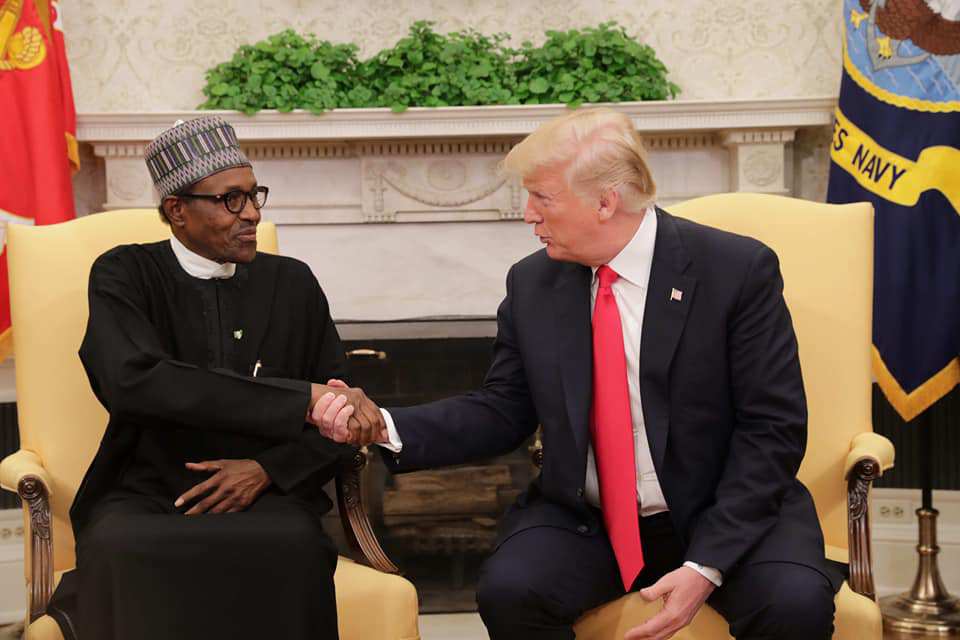
Kaycee had earlier been elected this year to the Legislative Assembly of Alberta representing Edmonton South-West. He was sworn in as a lawmaker on May 21.
He is serving as both Minister of Municipal Affairs of the Province of Alberta and a Member of Parliament representing Edmonton South-West.
The ministry is the third largest in Alberta with over $3.7 billion portfolio.
Kenney, who also took the oath of office on April 30 as Alberta Premier, reiterated in a statement that “Kaycee is a committed conservative, a lawyer, and a father of three.
“Prior to coming to Canada with his wife, Emem, Kaycee graduated from law school and was subsequently called to the Bar in Nigeria.
“He has since established a law firm in Edmonton where he continues to practice.
“Kaycee enjoys giving back to the community and volunteers his legal skills with the Law Society of Alberta Lawyer Referral Program and the Edmonton Community Legal Centre (ECLC).
“He … supports his community league activities and his church.
“Kaycee’s legal expertise and his unique understanding of the challenges faced by newcomers to Canada make him a valuable member of the United Conservative team as we work to present Albertans with a common-sense alternative to the NDP (New Democrat Party).”
In the United States, there are Nigerians in every field – who are professors, heads of universities, doctors, lawyers, computer scientists, entrepreneurs, et cetera.
However, inspiring contributions by Nigerians in the diaspora are hardly reported in the mass media, which prefer to dwell only on negative sagas.
The bad take
Truly, in other aspects of life, the image of Nigerians is being soiled.
Between January 2018 and June this year, 994 of them were deported from Ghana on the allegation of cyber-crime and prostitution.
In July, Nigerian traders in Kumasi, Ghana’s second-largest city, were harassed by Ghanaians who locked up their shops on the excuse that they sell inferior goods. The police intervened, but that did not stop the shops being closed the second time.
Nigerians in South Africa are targets of frequent xenophobia in form of physical assault, having their shops looted and property set on fire.
The latest violence in September led to the evacuation of at least 500 Nigerians by Air Peace, a private airliner.
In Kenya, the story is also not good. The Immigration Service of the country says Nigerians applying for study visas to Kenya must produce a drug clearance certificate from the National Drug Law Enforcement Agency (NDLEA) before they can be allowed to enter the country. The directive does not apply to nationals of other countries.
The policy drew criticism from Nigerians. Nairobi, however, refused to blink, save for the explanation by Immigration Service boss, Gordon Kihalangwa that the clearance would only apply to individuals of questionable character.
He did not say how the agency would determine the deviants to be recommended for the test.
Bad image created by a few
Professor Fred Aja Agwu, Head of International Law and Organisation at the Nigerian Institute of International Affairs (NIIA), Lagos says the behaviour of a few individuals should not be used to qualify the character of a country.
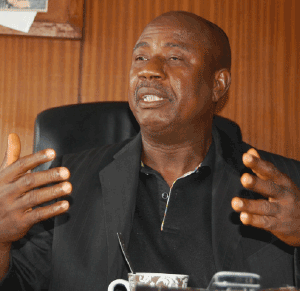
“There is no country that doesn’t have deviants. The job of the Nigerian government is to deal with the problem caused by those deviants.
“So, I disagree with people who will want to characterise Nigeria bad because some Nigerians don’t behave well. We should avoid such generalisation,” he said.
In the 1980s and 1990s, the concern of Nigeria’s foreign policymakers was how to counter the narrative that Nigeria was the bastion of corruption. In the 2000s, the concern has included the perception that Nigerians are ‘crooks’.
The image problem was created by a few fraudsters, also known as 419, a code in the law books that punish such crime.
“We will not condone any crime whether at home or abroad, and we will also not allow these Nigerians define us as a people with the reputation for criminality,” President Muhammadu Buhari told Nigerians during a visit to Japan in August.
While he was speaking in Japan, the US Federal Bureau of Investigation (FBI) released a list of 80 Nigerians involved in business email fraud and romance scams targeted at US nationals.
The impact has further undermined the ability of Nigerian businesses to do legitimate deals with foreign partners. In many cases, when contracts are approved, the party abroad demands a bank guarantee of a certain sum.
Chibuike Goodnews, co-founder of Dochase, a technology firm in Lagos, says the wrong perception of Nigerians affected him at an internet advertising technology conference in Germany in September.
“Someone told me he had been avoiding me because I am from Nigeria. Another simply asked me to change the address to gain credibility.
“The worst part is that the partnership deal I was hoping to close didn’t pull through because the other party, a US-based firm, insisted on a bank guarantee of $35,000 before they could proceed,” he recalls.
Strategies to redefine the Nigerian
Nigerians in the diaspora belong to the most educated immigrant group representing every professional field, according to the World Bank.
There are an estimated 15 million of them in all parts of the world. The average of them holds at least a bachelor’s degree with an annual median income of about $65,000. But these Nigerians are being misrepresented.
In 2009, the administration of Umaru Yar’Adua introduced the slogan, ‘Good People, Great Nation’ as a counterforce against the negative perception of Nigerians.
It is hard to measure whether the effort succeeded since the administration’s image itself got bruised for refusing to disclose the true state of the health of Yar’Adua before his death in 2010.
Under Goodluck Jonathan, Abuja said its foreign policy priority would be citizen-focused. But it was not to be. Quelling Boko Haram insurgency with global support became its main focus.
Buhari created Nigeria in Diaspora Commission through an Act of Parliament to help highlight a positive narrative and deal with any diplomatic fallout from the conduct of Nigerians abroad.
For the two years the commission has operated, its actions have been more of reactionary than proactive, shuttling the world – from Saudi Arabia to Ghana and South Africa to deal with diplomatic inferno.
Fault lies at home
Dr Tunde Oseni, head of Politics and International Relations at Lead City University, Ibadan says two factors are responsible for Nigeria’s wrong image abroad.
His view: “The first is the citizens. They have their share of the blame. When they get to other countries, some of them tend to overstep their boundaries. Again, there are criminals too in those countries, not only Nigerians.
“On the other part is the government. There is a school of thought which says that your foreign policy is an extension of your domestic policy.
“If at home you cannot provide jobs, people will migrate even in geometric proportions. They will also migrate for the wrong reasons.
“So, until we can put the proper architectural infrastructure in place, people will always migrate for the wrong reasons.”
Stories about Nigerians heading for Europe through the dangerous Sahara desert and the Mediterranean Sea lend credence to Oseni’s point.
Sahara desert is a huge ungoverned region infested with criminal gangs who sell off migrants into slavery. If a migrant escapes them, he may not survive the scorching temperature which starves many to death.
And if a migrant manages to get to the Mediterranean, there is a one in 36 chances he may die trying to cross the sea.
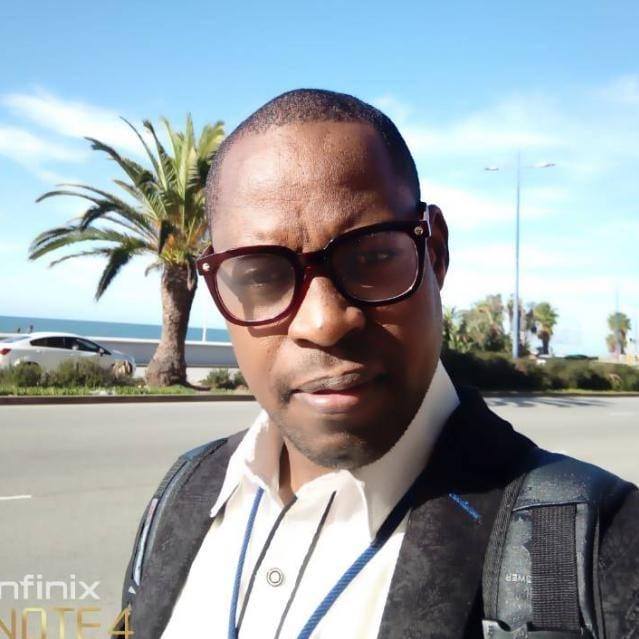
Yet, many Nigerians prefer to take the risk than remaining at home. Between April 2017 and October 2019, more than 10,500 of them were repatriated from Libya. This is to underscore the huge numbers who try to make the risky trip through the Sahara Desert.
What’s even the Foreign policy outlook?
Nigeria’s foreign policy in the post-colonial era is Afrocentric, to enhance its place as the leader of the black continent.
“We were involved in liberation in South Africa; we were involved in decolonisation in different parts of Africa. In fact, by the time Nigeria joined the United Nations, the whole world knew that Africa had arrived,” Oseni recalls.
But he argues that from the administration of Yar’Adua to that of Jonathan and now the one of Buhari, no one has been able to articulate Nigeria’s foreign policy.
“By the early 1980s and when the military intervened again, we began to have some kind of hazy foreign policy, not clear foreign policy.
“Of course, except for some popular measures made by Professor Bolaji Akinyemi, minister of foreign affairs under [Ibrahim] Babangida’s regime when we had Technical Aid Corps used in supplying human resources to other African countries.”
But Agwu insists that there is no nation without a foreign policy, and Nigeria cannot be an exception.
His words: “It depends on the details you are looking at. After all, we have a problem with South Africa and it has been resolved. Not that it has been comprehensively resolved, but at least the government responded to it.
“Even when South Africa was hesitant at allowing Air Peace clearance to land, it was the government’s intervention that ultimately settled it. Without the government’s intervention, it wouldn’t have been possible. The point I’m making is that we have a foreign policy and we are running it.
“Remember there was a time we didn’t have enough arms, and the government was looking for arms. But eventually, it soured arms from some Asian countries. That was under Jonathan. Some of the arms were bought and the arms have been very effective in helping us to confront Boko Haram.
“When Buhari became president, the G7 invited him and asked him to bring his wish list, which he did. Even [Donald] Trump invited him.
“You know that [Barack] Obama was hesitant in giving us arms. But when Trump assumed office, he tried to weigh in to ameliorate the situation a little. So, we have a foreign policy.”
What Nigeria must then do?
Experts argue that the UN should admit an African country into the permanent member club of its Security Council.
Only France, China, Russia, the United Kingdom and the United States currently decide the security of the world on that council.
Some want Nigeria to be the African representative on the Security Council since it is the African country that contributes the largest troops to UN peacekeeping operations.
“You know that in Africa we have regional hegemons. In West Africa, Nigeria is the hegemon. In Southern Africa, it is South Africa. In North Africa, we have Egypt.
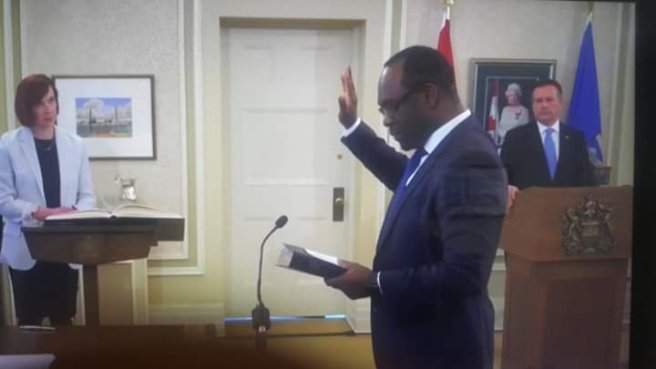
“And Kenya is East Africa hegemon. So, we have to also know how to coordinate and interact with these regional hegemons. So that by the time we go out, we speak with one voice,” Oseni explains.
“Africa is made up of 54 countries. It means that if we have the African unity that can give you a foreign policy that is maximal, you must speak with one voice.
“The African Union must be repositioned and Nigeria’s role in the United Nations must also be recognised. Nigeria must make sure that it becomes a permanent member of the United Nations, not just a temporary member.
“So there is the need for a lot of strategic thinking that can be done by a panel or a commission that should be set up by the federal government to redefine and reconfigure Nigeria’s foreign policy.”
Nigeria cannot be shoved aside in the global arena. Its only hindrance is the inability to fix its domestic affairs.

